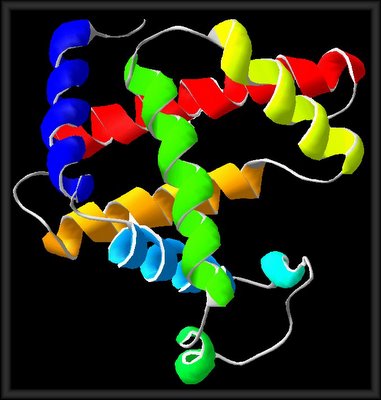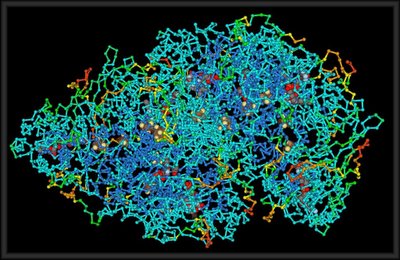overview
Proteins are essential to the structure and biological viability of all living cells and viruses. The cellular proteome is the total cellular protein under a particular set of conditions, while the complete proteome is the sum of all potential proteomes of a cell. Proteomics has become the subject of much research in cell and molecular biology.

myoglobin, mod. gjh.md
Proteins play a number of vital roles as:
Enzymes or subunits of enzymes -- catalyzing cellular reactions.
Structural or mechanical roles -- structural components of tissues, components of the cytoskeleton, centrioles, cilia and flagella, microtubules, molecular motors.
Intra- and intercellular signalling functions -- ion channels, receptors, membrane pumps.
Regulatory proteins in genetic transcription, RNA processing, spliceosomes.
Products of immune response that aid in targetting of foreign substances and organisms
Storage and transport of various ligands.
The source of essential amino acids
Almost all natural proteins are encoded by DNA, which is transcribed and processed to yield mRNA, which then serves as a template for translation by ribosomes at the rough endoplasmic reticulum.

Structure of a protein, public domain

0 Comments:
Post a Comment
<< Home